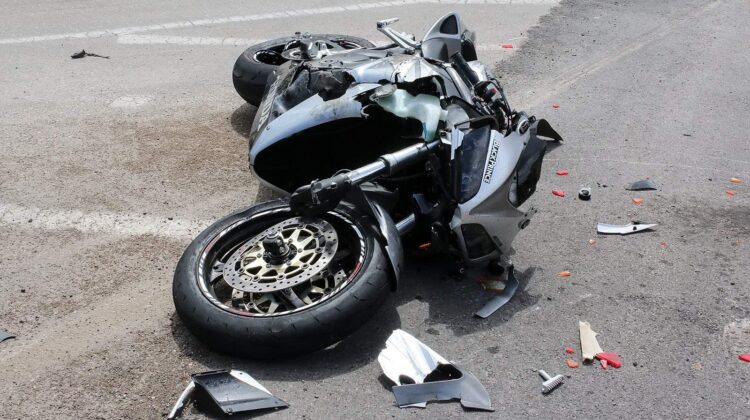
While there is no denying a bike’s thrill, speed, and agility, it is equally valid that this is perhaps the most unsafe mode of transportation one can use.
Although bicycles make up a small portion of traffic crashes, bike riders are more likely to suffer serious injury from a traffic accident than other vehicles. In fact, 80% of motorcycle crashes lead to injury! In Colorado, the percentage of bike riders in Denver has risen by 36% between 2016 and 2019.
This reminds us to be more cautious when on the road, especially when riding a vehicle as exposed and unsafe as a bike. However, it isn’t always possible to avoid any such incident. So, one should always be prepared to deal with such unfortunate occurrences efficiently.
Your response following a bike accident is crucial to your physical and economic safety because you can seek compensation if the other rider is to blame for most bike crashes. The following are things you should do after a bike accident.
1. Get information from the other Driver
After attending to your immediate health needs, you must ensure that you have the other driver’s name, phone number, address, license number, vehicle number plate, and insurance details.
Once you have the details, getting in touch with motorcycle lawyers in Denver, Colorado, to seek compensation for the damages would be ideal. Without the details, you would be unable to keep track of the other driver and obtain your legal right.
While the police will come and document the details, don’t rely solely on that. It is reasonable to expect that you might not be in good physical shape to do this task yourself, so you may seek the help of any bystander. They might not, and you won’t have any information to fall back on if the driver bails.
2. Don’t leave the site before the police arrive
Even if you are sure you aren’t seriously injured, don’t leave the site. The internal damage may become evident later when you’re calmer. Whenever injury or property damage is involved, you have the legal right to seek compensation from the other party. So, wait for the police to arrive and take your statement.
If you leave the site early, you might not have any other opportunity to pursue the driver. Even if you do, remember that in Denver, there is a statute of limitation for motorcycle accidents that does not permit you to file a lawsuit after a specific time has passed.
Also, don’t try to negotiate with the other driver while you wait. They will likely admit the blame and apologize, denying it later, even refusing to be present at the site.
3. Document any injuries
Your injuries are the primary evidence you would need when you file a report and seek legal compensation. This applies to the injuries you can spot during the accident or shortly afterward; and includes all longer-term effects and delayed responses. Some common delayed accident injuries include neck and back injuries, sprains, spine injuries, whiplash, and contusions.
It is a good idea to keep a journal to document all your physical symptoms and include pictures of the physical injuries you sustain right after the crash. Monitor your physical health every few days and report any negative signs.
4. Make sure the police capture your side of the event
In bike accidents, some police officers completely ignore the bike rider’s side of the story and take a statement only from the motorist. You must make every effort to ensure that your side doesn’t go undocumented, as this will almost certainly tip the scales in favor of the other rider.
Make sure to get all injuries you have sustained in the police report, no matter how small. If, despite all your efforts, the police refuse to take your statement, you can get the report amended later.
5. Seek professional help
Once you have worked on collecting evidence, documented the details, and filed a police report, it is time you call in the professionals. Most vehicle accidents involve severe legal complications, and you should consult a personal injury or motorcycle accident lawyer.
An attorney will guide you about the steps to follow, will negotiate on your behalf with the insurance companies, and represent you when you file a lawsuit. In fact, it is advised not to talk to your insurance company at all before you consult an attorney.
A motorcycle accident lawyer will collect all the evidence, investigate the case, and file a suit on your behalf if needed.
Final words
In Denver, like in many other states, bicycle accidents contribute significantly to traffic-accident-related injuries. Colorado statistics reveal that the other driver is to blame in 58% of motorcycle accidents. Hence, in most bike accidents, the biker is in the position to file a lawsuit and seek compensation.
Therefore, if you were injured in a bike accident, remember to get the other driver’s details, stay at the site until the police arrive, document all injuries, report your side of the story to the police, and get professional help. The evidence you collect will help you build your case.

